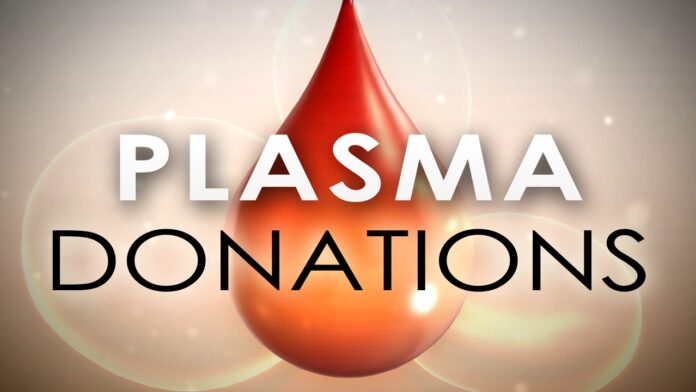Blood plasma donated by people who have recovered from COVID-19 is being studied as a potentially lifesaving treatment for other sufferers of the disease, and a major plasma drive is being held in Brownsville on July 21 and July 28 from 10 a.m. to 4 p.m. at the Courtyard by Marriott at 3955 N. Expressway.
Plasma is the liquid part of the blood, and donations from the upcoming drive will be used to treat critically ill patients in hospitals in the Rio Grande Valley as part of a national study being conducted by the Mayo Clinic to find out if what’s referred to as “convalescent plasma” can be an effective treatment for the disease, in which case the Mayo Clinic would seek expedited approval for it through the U.S. Food and Drug Administration as a standard treatment for COVID-19 patients.
Dr. Beverly Zavaleta, heading up the convalescent plasma program at Valley Baptist Medical Center in Brownsville, said plasma transfusion has been in use for 100 years and that the evidence so far is promising in the current study.
“They have released interim results on the side effect, and those are showing no negative side effects from receiving the convalescent plasma, which is really important, because I have had a patient refuse to participate in the study,” she said. “It’s an optional treatment obviously. No one’s required to receive any treatment that they don’t want. But some patients have been hesitant because they hear it’s investigational, and they’re very nervous about it, so they don’t get it. I emphasize to people that it is no more risky than your average plasma transfusion, which we use all the time in cases of surgery or trauma.”
Zavaleta has also heard the concern from patients receiving the plasma treatment that the plasma itself is infected with the virus and will make them sicker, though that’s not the case at all, she said.
“That can’t happen,” Zavaleta said. “The plasma is not infected. The plasma contains antibodies, which is a protein that fights the virus. So the recipient of the plasma cannot be infected by the plasma. This is called passive immunity. It’s similar to what happens when a woman is pregnant. Her antibodies to whatever diseases that she has had, or she has had immunizations (for), she passes those antibodies to her baby in utero, so that when the baby is born the baby is protected.”
She said all the hospitals in the Rio Grande Valley signed up for the Mayo Clinic trial, which is being coordinated regionally by Doctors Hospital Renaissance. The Mayo Clinic is expected to release more interim results in early August.
Convalescent plasma donations are already being accepted in the Valley, though there hasn’t been a donation site in Brownsville up to now, she said. Meanwhile, demand is quickly exceeding supply as more and more people become infected with COVID-19, Zavaleta said.
“What’s happening now is I have people who are enrolled to receive it but they’re having to wait 12 to 48 hours before they get their unit of plasma, whereas two weeks I would enroll them and they would get it within four to eight hours,” she said. “During that delay they’re deteriorating, and that’s not good, so if can we ramp up the supply then we can get it to people before they’re deteriorating.”
Three units of plasma is usually collected from each donor, meaning that one donor can potentially save the lives of three people, Zavaleta noted.
“This is something that people can really do to help people who are sick,” she said.
Donors must be at least 18, tested positive for COVID-19 via nasal swab test and been symptom-free for 28 days. Donors who tested positive but had no symptoms must have tested negative for the virus at least 28 days prior to donating plasma. An antibody test will be administered on site to make sure donors’ blood contains the necessary antibodies. To schedule an appointment call (956) 215-3166 or (956) 362-2390.
prereg.dhr-rgv.com/Plasma/





